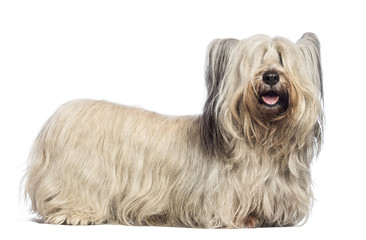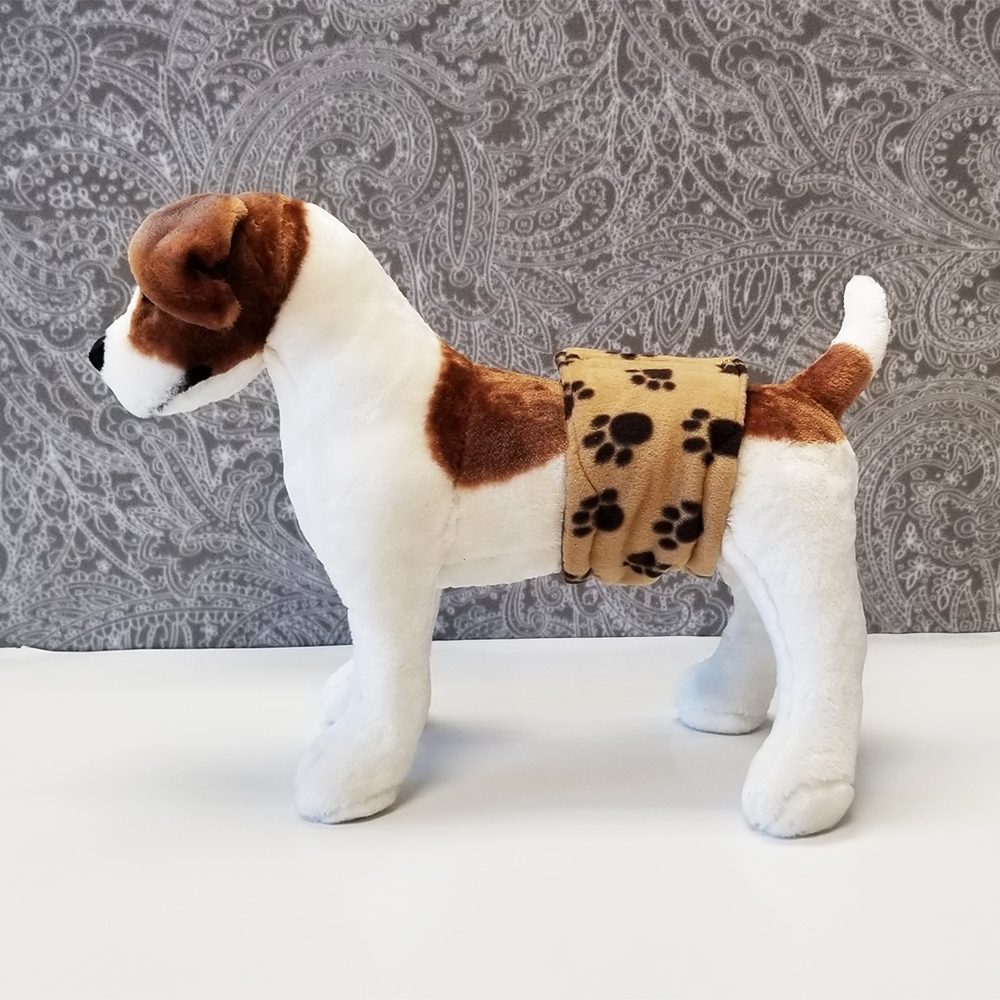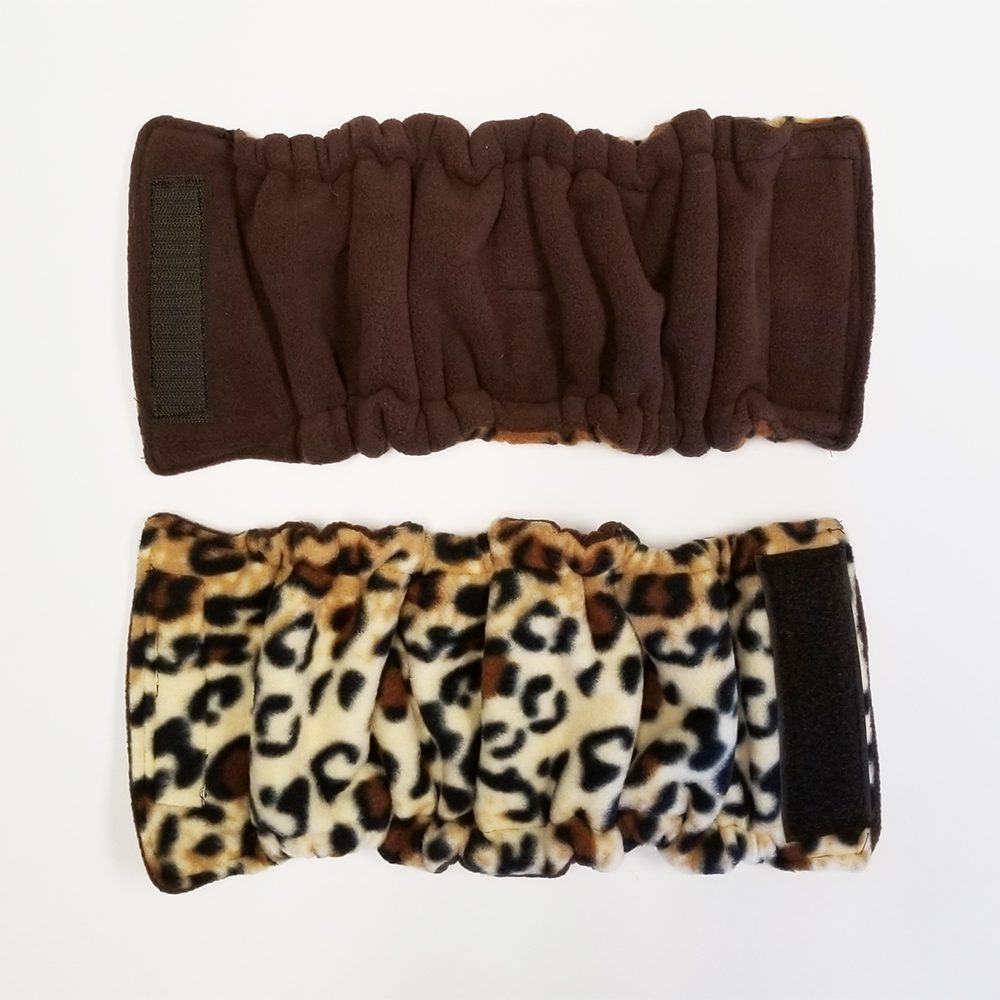Skye Terrier

Skye Terrier: The Elegant and Loyal Scottish Breed
Welcome to the comprehensive guide on the Skye Terrier, a breed distinguished by its elegant appearance, steadfast loyalty, and dignified demeanor. This page delves into the world of the Skye Terrier, a long and low-to-the-ground breed, known for its distinctive flowing coat, keen intelligence, and affectionate nature, making it a cherished companion and a proud representative of its Scottish heritage.
Overview
Height: Males: 10″; Females: 9.5″
Weight: 35- 40 pounds
Colors: black, blue, cream, gray, fawn, silver, platinum
Life Expectancy: 12-14 years
Group: Terrier Group
________________________________________
Physical Characteristics
- Unique Long and Low Stature: Skye Terriers are known for their distinctive body shape; long and low with short, sturdy legs. This build was originally intended for hunting and burrowing into dens.
- Luxurious Coat: They sport a beautiful double coat with a short, soft undercoat and a long, straight, and hard topcoat. Their coat, which can be black, blue, grey, or fawn, elegantly drapes down each side, adding to their noble appearance.
Temperament and Personality
- Loyal and Affectionate: Skye Terriers are deeply loyal to their owners, often forming a strong bond with a particular family member. They are known for their loving and affectionate nature towards those they trust.
- Reserved Demeanor: While friendly and gentle, Skye Terriers can be somewhat reserved, particularly around strangers, embodying a dignified and thoughtful temperament.
- Intelligent and Independent: These dogs are intelligent and have an independent streak. They can be contemplative and are not as high-energy as some other terrier breeds.
Training and Exercise Needs
- Training: The Skye Terrier’s intelligence makes them trainable, but their independent nature requires patience and consistency. Positive reinforcement methods work best for this breed.
- Exercise: Moderate exercise is sufficient for Skye Terriers. Daily walks and playtime in a secure area are ideal for keeping them physically and mentally stimulated.
- Mental Stimulation: Mental engagement through puzzle toys, scent games, and gentle training exercises is important to keep them content and prevent boredom.
Health and Nutrition
- Diet: A balanced diet suitable for a small to medium-sized, moderately active breed is important. Regular veterinary check-ups are essential to maintain their health.
- Common Health Issues: Generally robust, Skye Terriers can be prone to specific health issues typical to the breed. Regular health screenings are advisable. Some problems that can affect the breed are Hypothyroidism, bleeding disorders, mammary tumors, Hemangiosarcoma, disc disease, Panosteitis, Hypertrophic Osteodystrophy. Dog Health Dictionary
Grooming and Care
- Coat Maintenance: Their long coat requires regular grooming to prevent matting and maintain its beautiful appearance. This includes brushing and occasional professional grooming.
- General Care: Basic care practices, such as dental hygiene, nail trimming, and ear cleaning, are important for their overall well-being.
Living with a Skye Terrier
- Family Compatibility: They are great with families, showing affection and loyalty. They do well with older children who understand how to interact with dogs respectfully.
- Adaptability: Skye Terriers adapt well to various living situations but thrive best in environments where they can have calm and stability.
- Companionship: They form strong bonds with their owners and enjoy being involved in family activities, appreciating a quiet and peaceful home environment.
Responsible Ownership and Adoption
- Selecting a Breeder: Choose breeders who prioritize health, temperament, and adherence to breed standards.
- Adoption Options: Considering adoption from shelters or breed-specific rescues is a commendable way to provide a home to a Skye Terrier in need.
.
Conclusion: The Skye Terrier, with its elegant coat, loyal heart, and dignified personality, is an ideal breed for those seeking a devoted, affectionate, and relatively calm companion. Their unique appearance and gentle temperament make them a beloved pet and a graceful addition to any household.
Housebreaking
PUPPY HOUSEBREAKING tips: https://www.dog-breeds.net/puppy-housebreaking/
ADULT MARKING AND RETRAINING tips: https://www.dog-breeds.net/dog-housebreaking-marking-page/



